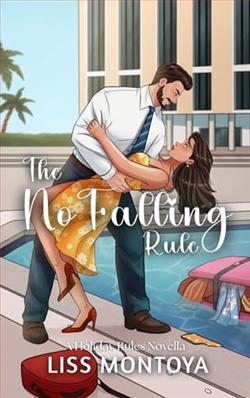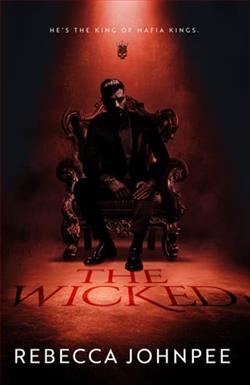Page 2 of Blood on the Water (William Monk 19)
Inside, the warehouse was lit by bull’s-eye lanterns, and there were a dozen or so people lying on the floor wrapped in blankets. Several women were ministering to them with hot drinks and towels, in some cases rubbing their arms and legs, all the time talking to them gently. Only a few glanced up at Monk’s entry. He did not look like a policeman; he was exhausted, unshaven, and dressed in ill-fitting waterman’s clothes.
“My name is Monk,” he introduced himself to a woman carrying towels and bandages. “River Police. We need to find out what happened. Which of these people can I speak to?” he asked.
“Does it have to be now?” the woman said sharply. Her face was gray with fatigue, eyes red-rimmed. There were stains of dirt and blood down the front of her dress.
“Yes,” he said quietly. “Before they forget.”
Another, older, woman rose to her feet from where she had been helping a man sip a hot drink. She was strongly built, her clothes so worn they were faded in patches where the pattern had been rubbed off the cloth. In the yellow light of the lantern her face suggested not only weariness but disgust.
“It’s unlikely they’ll forget!” she said between her teeth. “They will probably relive it the rest of their lives!”
“None of us will forget the horror,” Monk answered her quietly. “But it wasn’t an accident. I need to know who did this, and for that I need details only they can provide.”
“Find whoever built the damn boat!” she retorted bitterly, turning away from him and towards a man cradling a broken arm.
Monk put his hand on her arm, holding her firmly. He felt her tense and then pull against him. “It was an explosion,” he said between his teeth. “The whole bow blew out; there was a hole in it you could drive a coach and four through.”
She turned back to him, her eyes wide. “Who told you that?”
“No one. I was on the river, a hundred yards away. I saw it.”
The woman crossed herself, as if to ward off an unimaginable evil. “Don’t keep ’em long,” was the only thing she said.
Slowly Monk went with her from one to another of them, helping her to hold them up, to keep the blankets around them. He refilled cups and mugs with tea and as much whisky as he dared, all the while gaining the halting accounts of what little they knew. There were few facts to be had. Everyone agreed that there had been no warning. One moment they were laughing and talking, listening to the music, watching the lights, flirting, telling jokes. The next there was a deafening noise. Some found themselves in the water almost immediately. Others recalled scrambling across the deck and jumping as the whole boat seemed to heave them off.
Most of them had tales of how they were rescued, the despair as the water washed over them, then the feeling of rel
ief as hands grasped theirs, all but wrenching their arms from the sockets as they were pulled upward, gasping and trying to stammer their gratitude. Others had clung onto wreckage for what seemed like ages until a barge or a ferry made its third or fourth rescue journey.
One man in a torn shirt broke down and wept. He had been on the deck with his wife. The very first shock of the explosion had separated them and he had not seen her again. Monk wanted to offer him some hope, but even before he spoke the words he cringed at how meaningless they were. After all, how would he have felt had it been his own wife, Hester?
If Hester had drowned then he would wish he had too. Melodramatic? Perhaps. But he could not even imagine the pain of never seeing her again, or touching her, never being able to speak to her, hear her footsteps in the house. Never sharing anything more with her.
He gripped the man’s hand and let him weep, holding on to him as if he, too, were drowning.
All the survivors he spoke to were men, except one. It was more than just greater physical strength that had saved the men rather than the women. It was the complete inability of the women to fight free of the heavy, wet skirts wrapped around them.
From all of the survivors, the story was the same. They could offer no details that could help make sense of the explosion; just the horror of what they had experienced, the darkness and cold and fear that they would die in the water. By dawn there was nothing else to ask, nothing to hear. Monk went back to the station at Wapping to snatch an hour or two of sleep, and to send a message to Hester that he was unhurt.
He found Orme standing before the potbellied stove warming himself as if he, too, had just come in. He straightened up as soon as Monk entered, and moved a little to one side to make room for him.
“Learn anything useful?” Monk asked.
Orme huddled further into his jacket, which was pulled up around his ears.
“No, sir, nothing as I didn’t expect—poor devils. All on deck when it exploded. Everyone agrees it was in the bow. Just blew the whole thing off, but we knew that. Took in water like a scoop.”
“No one saw anybody acting strangely?” Monk persisted. He did not look at Orme’s face. He did not want to see the emotion in it. Only two days ago he had been celebrating the birth of his first granddaughter, wanting to share his happiness with everyone. Now his voice was hoarse, as if his throat hurt.
“No, sir. Too busy having fun, dancing, joking, doing what people do on a cruise.” He took a long breath.
“No one from below deck?” Monk asked. They must keep talking; silence would be worse.
“Not that I saw,” Orme answered. “Apparently there was some kind of fancy party going on down there. Special guests only. Best champagne and food.” His lips tightened. “We’ll get a list of them come daylight. It’ll be bad.”
“I know. Get an hour or two with your head down. We’ll need all our wits when we have to haul the thing up. I’ve never lifted a big one. How do they do it?”
“What?”















